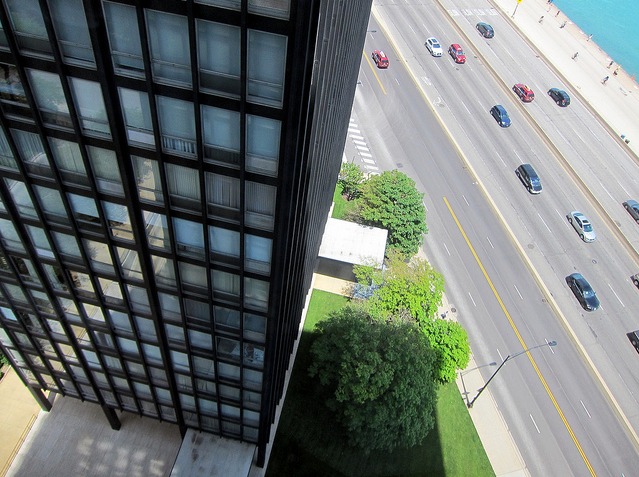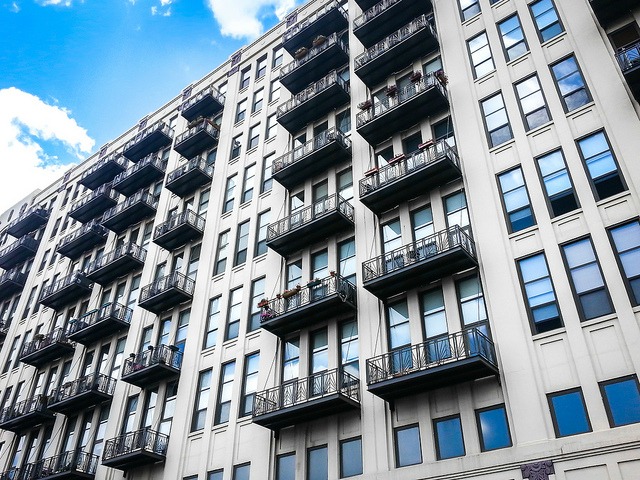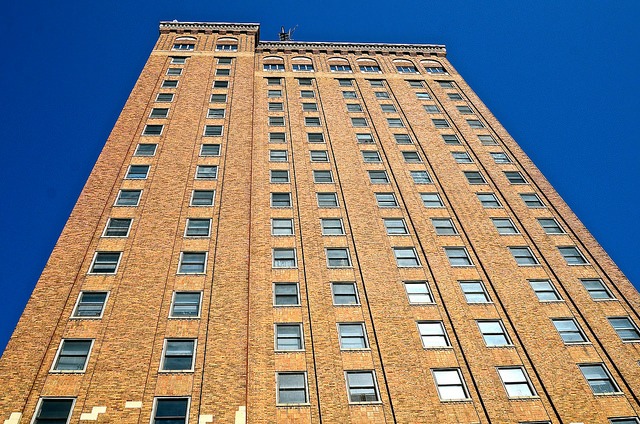Renters Beware: How Rahm's Epic Property Tax Hike Could Affect Your Rent
By Kate Shepherd in News on Oct 1, 2015 4:34PM
If Mayor Rahm Emanuel's 2016 city budget proposal passes (which it likely will), Chicagoans stand to face a massive, $588 million property tax increase, a monthly garbage collection fee, a tax on e-cigarettes, a cab fare increase and Uber and Lyft surcharges.
But even if you don't vape, take cabs or own a home, those tax hikes could hit renters where it hurts the most. Real estate experts say it's almost inevitable that the property tax increase will drive already record-high rents up around the city even more.
"An increase in property taxes is bound to cause an increase in rents," Heather McRae, a senior loan officer at Chicago Financial Services, told Chicagoist. "The bottom line is, an increase in property taxes increases the cost of holding the asset, which in this case is real estate. The owner will need to cover that additional cost and increasing the rent is the swiftest way to do it."
If Emanuel's property tax is approved by the City Council later this month (a move Emanuel says would be necessary to avoid police officer and fire fighter layoffs), experts say the effects could vary from neighborhood to neighborhood.
If you're in a neighborhood where rental inventory is relatively limited you, will see a bigger increase because of existing demand, according to Svenja Gudell, chief economist for Zillow. In neighborhoods where renters have more choice and a bigger inventory too choose from, rents likely won't go up as much because landlords have to stay competitive. Renters will still have more bargaining power and choice in those areas—that's good news for areas where lots of new apartment developments are going up, and neighborhoods that lie closer to the suburbs. This map breaking down current Chicago rents by CTA stop shows some of that logic in action.
"Most likely you will see rents rising to some extent," Gudell said. "It depends on the market how much they will rise."
Chicagoans are already spending more and more of their monthly income on rent, according to Gudell. The rate really started to pick up around 2000, when the average monthly income spent on rent jumped from 22 percent to 31 percent.
"This will put them in an even worse spot because they're already spending more than they're used to spending," Gudell said.
If coming up with a rental payment every month becomes harder, more people might consider buying a home over continuing to rent. But that leaves Chicagoans who have trouble saving for a down payment, or affording the higher property taxes, in the lurch. And when more people have no choice but to rent, that demand can drive up apartment costs even further.
John Boyd Jr., principal at The Boyd Company says the neighborhoods to watch out for most here are Wicker Park, River North and other neighborhoods popular among Millennials who are deferring home ownership due to financial commitments like student loans.
Economic theory shows that in a large city such as Chicago, a large share of the property tax imposed on apartment buildings would be passed onto renters, according to Adam Langley, a senior research analyst for the Lincoln Institute of Land Policy.
Landlords might be more likely to pass on the tax increase to the renter in popular neighborhoods close to the city's center, than in neighborhoods closer to the suburbs, like Rogers Park, Langley said. In theory, renters in outlying neighborhoods have a greater ability to move across the border to the suburbs, so their landlords will most likely have to bear that tax burden themselves. But downtown landlords would have greater leverage to pass it on because residents are less likely to move to Evanston or Skokie to escape higher rents.
Another concerning component of the proposed budget is the homeowner's exemption, which would shield Chicago homeowners from most of the hike and pass the cost on to businesses, including owners of apartment buildings, Langley said. That would mean a disproportionately larger share of the hike would ultimately fall on renters, as opposed to individual home owners.
"It could have a significant impact on renters," Langley said in an interview.
During a meeting of the House Revenue and Finance Committee in Springfield last week, business groups and Democrats slammed the proposed homeowner's exemption, which must be approved by the governor and legislature, because of its potential to increase rents, according to Crain's. But Deputy Mayor Steve Koch argued that the apartment rent increase would be "minimal."
There's still no guarantee that the property tax hike will pass the City Council and the first alderman to figure out that renters are likely to take the biggest hits from the increase and rally renters will provoke a firestorm of protest, according to the Tribunes editorial board.
If you own property and want to see how much the proposed increase would raise your property taxes, check out the Tribune's calculator.


